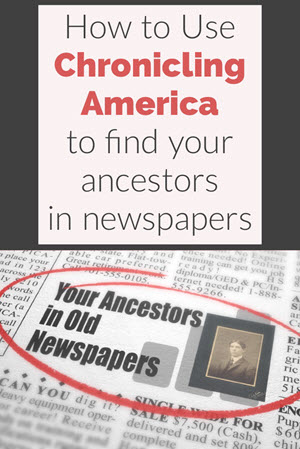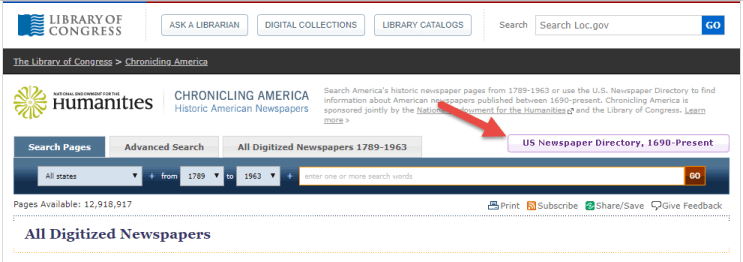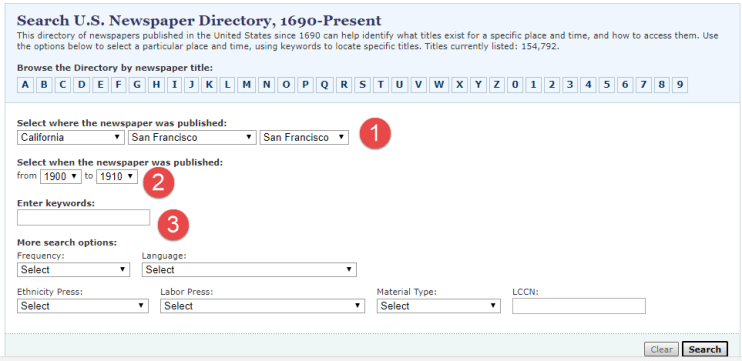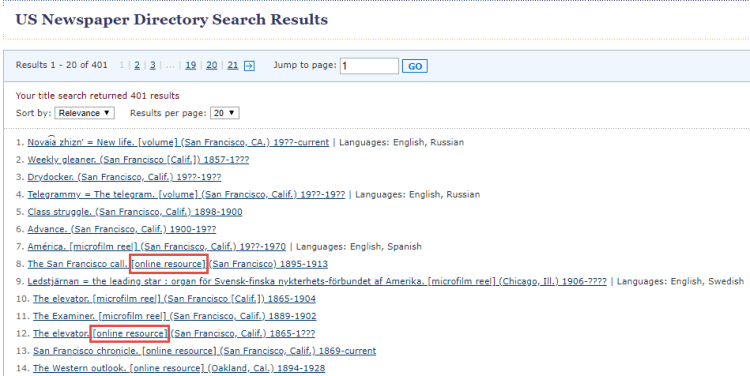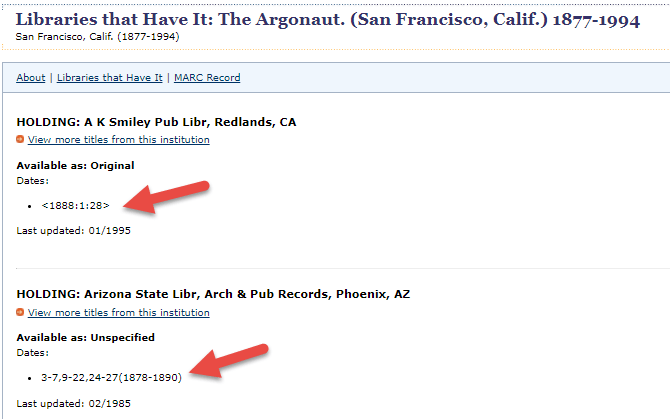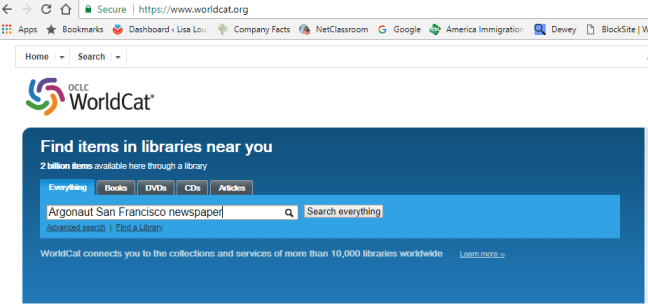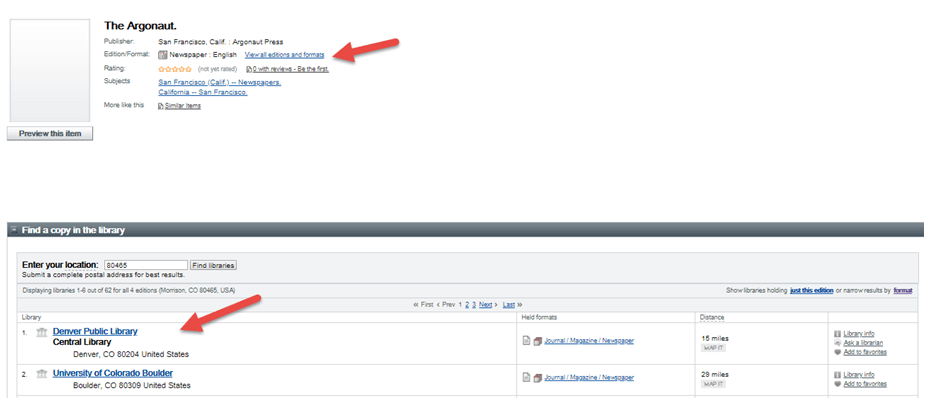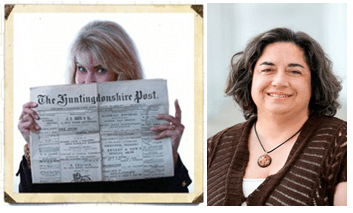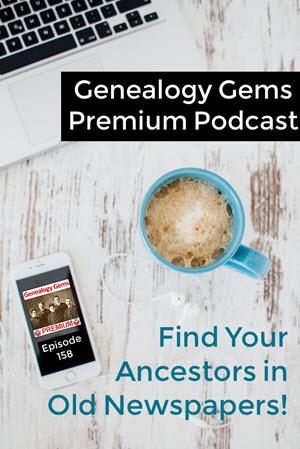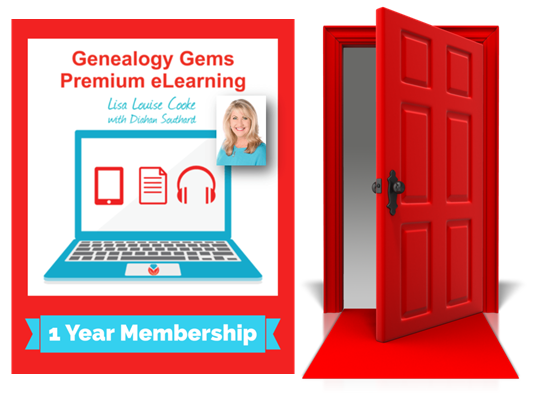How to Use Chronicling America to Find Your Ancestors’ Hometown Newspapers
Finding old newspapers from your ancestors’ hometown isn’t always easy. Here’s how to use Chronicling America to identify the newspapers that were in print at the time. Those issues may not be online, so Chronicling America also points you to copies of those newspapers at libraries and archives.
In the new Genealogy Gems Premium Podcast #158, I spoke with Deborah Thomas at the Library of Congress. She manages one of my favorite websites for family history: the free historical newspaper site, Chronicling America. We talked about its amazing treasure trove of digitized newspapers: what’s there, what’s coming, and tips for searching them.
But only 1.5% of the 155,000 newspapers published over time in the U.S. newspapers have been digitized at Chronicling America. So you’ll want to look those ones up and locate them offsite. The good news is that there’s a lesser-known tool at Chronicling America to help you do just that. It’s called the US Newspaper Directory. Let’s walk through using it step-by-step.
How to Use Chronicling America to Find Your Ancestors’ Hometown Newspapers
- Go to the free Chronicling America website (no login needed).
From the home page, click the US Newspaper Directory, 1690-Present button on the top right:
The US Newspaper Directory is the most comprehensive database in the world for historical U.S. newspapers. It contains every newspaper known to the Library of Congress. That makes it the perfect place to find the newspapers that were printed in your ancestor’s hometown in any given time and place. The directory will provide you with a library catalog of holdings of these papers.
2. Fill in the blanks.
As shown below, first select the state and county (1). You may also select the city, but for smaller towns or rural areas, you may want to look at all papers that cover the county first. Neighboring towns or cities (even across county lines) may have reported on events local to your family, so it’s worth running a few searches. My tip: use Google Maps to find names of nearby towns. After you select the place, then narrow down a time period (2). Below is a search for newspapers in print at the time of the 1906 San Francisco earthquake, which affected my family. The image below also gives you a third type of selection criteria to focus on specific newspapers, such as those with a particular keyword in the title, or those printed in English or geared toward a particular occupation (3).
3. Choose a newspaper.
Below is a list of results from the above search, narrowed down to just English-language papers. There are still over 400! Some are multiple entries for the same paper, with different formats. Some may be less likely to mention my family, such as certain immigrant-oriented or political papers.
I like to start with the ones that are already online, as indicated in the boxed text above. Click on one of those items, and scroll to the bottom of the catalog description to where it says Related Links, as shown below. Click the link to browse online issues.
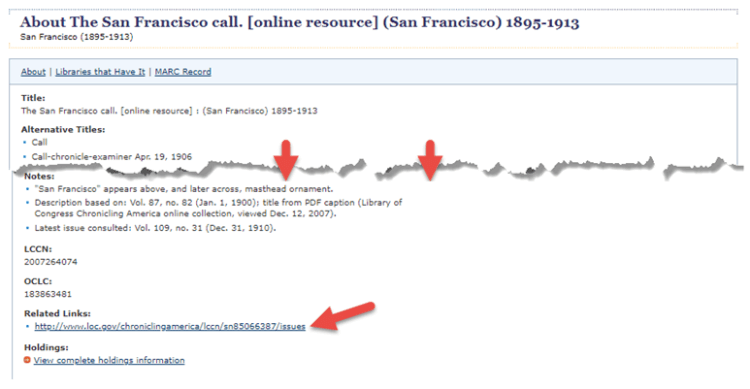
Unfortunately, you can’t search within just those issues, you can just browse. However, because this is an “online resource”, you could go back to Chronicling America’s home page and search by date range, name and keyword for that newspaper and your ancestor’s name in it (as shown in the following example.)
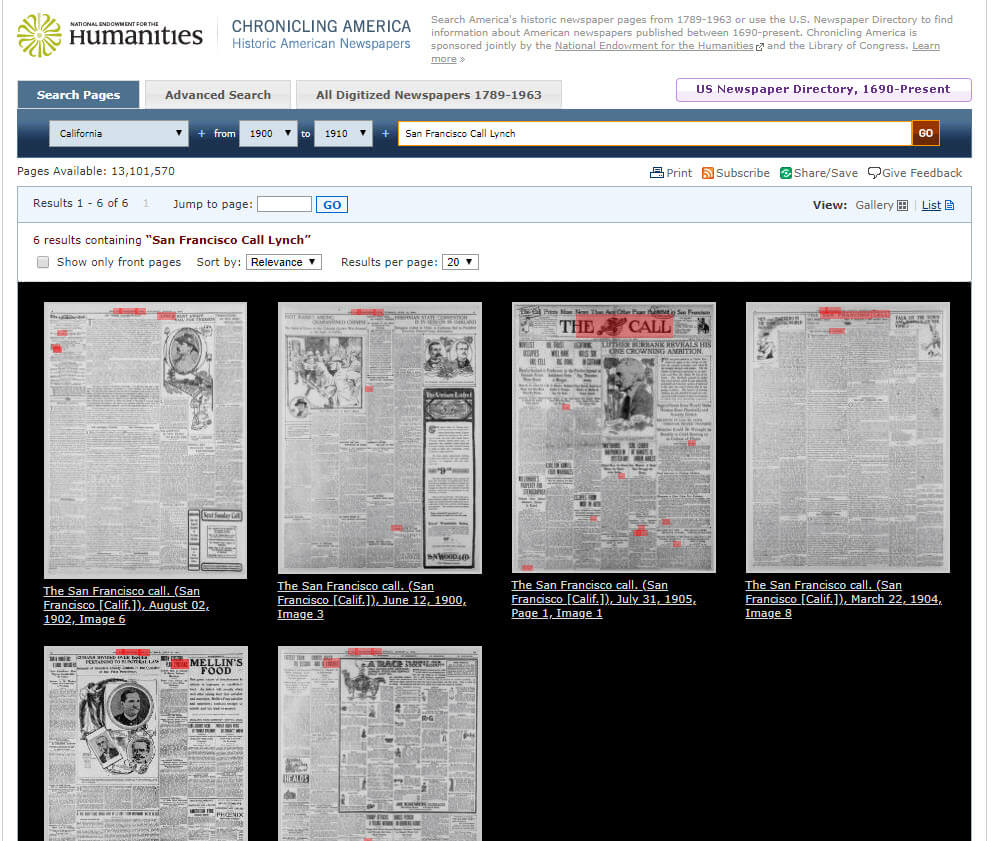
4. Turn to offline papers.
If there are issues of this newspaper that aren’t online, the US Newspaper Directory can still help. In the above entry, see where it says Libraries that Have It just below the title of the newspaper? Click that link and you will see a list of library holdings, as shown below. Watch for the issue dates held at each library. You may have to scroll through several library holdings before you find the dates you want. (Remember, there may be multiple entries in the catalog for that same newspaper in different formats, so go back to your search results to look for additional library holdings mentioned in other entries.)
5. Get access to an offline newspaper.
Unfortunately, we can’t click from this point directly to the library holding of these issues. Instead, open a new window in your web browser and go to www.WorldCat.org, an enormous compiled catalog from thousands of libraries. Type the title in the search box and include the keyword newspaper, and then click Search Everything.
Clicking on the first search result in WorldCat takes you to The Argonaut’s entry in WorldCat, shown below. Here you may look toward the bottom of the entry to see all libraries with that newspaper. Enter you zip code in the Enter your location field and click Find Libraries and WorldCat will display the results in the order of their proximity to you.
On the right side are links to view each’s library information or contact a librarian. Use either option to explore the possibility of having copies made of specific articles, like an obituary, or seeing whether they would lend their copy to a library near you via inter-library loan (they probably won’t send original issues, but may be willing to lend a microfilmed copy). If you don’t find a workable library here, click the View all editions and formats link near the top of the entry. This will reveal additional options for accessing the item.
Get the scoop on your family in old newspapers
Here are more ways to learn about genealogy research in old newspapers:
- Genealogy Gems Premium eLearning members can listen to the Chronicling America interview in the Genealogy Gems Premium Podcast episode #158 (click here to learn how to become a member).
- My book, How to Find Your Family History in Newspapers, is a great choice for starting-line-to-successful-finish how-tos.
- Keep reading these articles on my blog that are all about using newspapers for genealogy!

About the Author: Lisa Louise Cooke
Lisa is the Producer and Host of the Genealogy Gems Podcast, an online genealogy audio show and app. She is the author of the books The Genealogist’s Google Toolbox, Mobile Genealogy, How to Find Your Family History in Newspapers, and the Google Earth for Genealogy video series, an international keynote speaker, and producer of the Family Tree Magazine Podcast.

